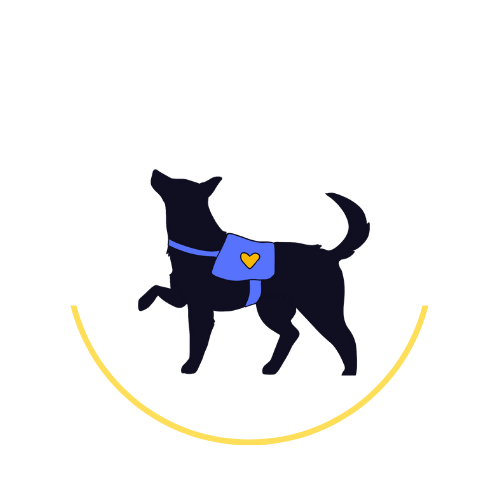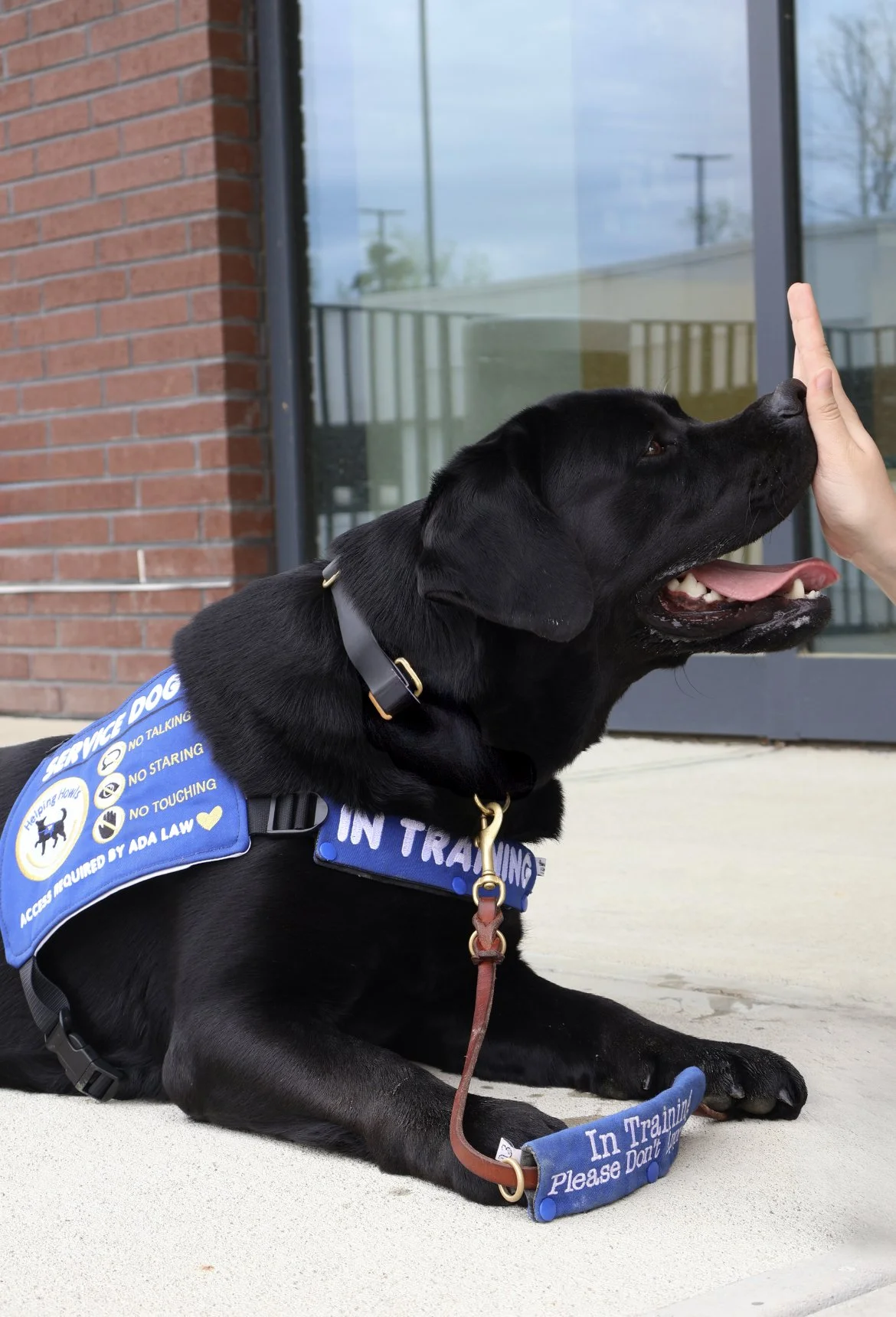Can you get an Alpha-Gal Service Dog?
What Is Alpha-Gal Syndrome?
Alpha-Gal Syndrome (AGS) is a serious and potentially life-altering condition caused by an allergic reaction to alpha-gal, a sugar molecule found in most mammals (but not in humans or primates). This reaction is typically triggered by the bite of a Lone Star tick, which transfers the molecule into the body.
People with AGS can experience allergic reactions to red meats like beef, pork, lamb, venison, dairy, and other mammal-derived products (think gelatin, bone char, etc). Reactions can range from delayed-onset stomach upset to full-blown, life-threatening anaphylaxis. And because alpha-gal can be hidden in medications, supplements, food additives, and even personal care items, living with AGS requires constant vigilance.
What Is an Alpha-Gal Service Dog?
Alpha-Gal Service Dogs are scent detection dogs trained to alert their handler to potential sources of alpha-gal in their environment. While dogs cannot detect the sugar molecule itself (they naturally produce it), they can be trained to alert to the presence of red meat, dairy, and other mammal-based allergens—whether cooked, raw, in fumes, or as trace contamination.
Their job? Helping handlers confidently navigate the world: restaurants, grocery stores, public spaces, and even their own homes, by alerting them to invisible dangers before exposure happens.
Why Eating Is More Than Just a Meal
Eating is deeply social. It’s tied to celebration, family, culture, and community. But for those with AGS, the constant risk of exposure can turn meals into moments of fear and isolation. Many choose to avoid food-based gatherings altogether to stay safe.
An Alpha-Gal Service Dog offers peace of mind in these moments—enabling people to participate more fully in shared meals, connect with others, and enjoy life with far less anxiety.
Tasks Performed by Alpha-Gal Service Dogs
Allergen Detection
Alerting to the presence of red meat or dairy in food, oils, packaging, or airborne fumes
Scanning environments like restaurants, homes, or stores for contamination
Detecting allergens on silverware, plates, or serving surfaces
Most Alpha-gal service dogs are trained on all common red meats & dairy
Response Tasks
Retrieving epinephrine or emergency meds
Alerting others during a reaction
Providing pressure therapy after exposure
Environmental Scanning
Blocking entry into areas with airborne allergens
Notifying handlers of allergens in high-risk public settings
Limitations of Alpha-Gal Service Dogs
These dogs cannot detect alpha-gal itself (because all dogs have it naturally), but they can reliably alert to specific food-based scents associated with AGS reactions. The distinction is important—but the results can still be life-changing. With this, not every Alpha-gal service dog is able to reliably detect allergens, so some may only have response tasks versus alerts.
Best Breed for the Work
Not every dog is cut out for allergen detection or service work. Labrador Retrievers top the list for Alpha-Gal Service Dog work due to their ideal scenting ability, biddability, stability, and strong work ethic. They’re also food-motivated, human-oriented, and versatile across many working roles. No other breed is as perfect for this role than Labrador Retrievers.
At Helping Howls, we specialize in selecting, raising, and training Labradors and Goldens for complex service roles, including allergen detection. We also support client-owned dogs through temperament testing and suitability assessments.
Train With Helping Howls: Board and Train or Virtual Support
Helping Howls offers expert training programs designed specifically for individuals managing AGS. Whether you’re local to the Richmond or Midlothian, VA area—or need remote support—we’ve got you covered.
Board and Train: A Turnkey Option
Our board and train programs offer immersive, daily training in a real-world home setting. Perfect for families who want a highly skilled service dog without managing every training step themselves.
You’ll get:
Fully customized allergen-alert training
Real-life exposure sessions in stores, restaurants, and more
In-depth handler education during transfer
Expert trainers certified in scent work and medical task training
Virtual Training: Anywhere You Are
Step-by-step coaching via video
Personalized feedback based on your dog’s progress
Real-time progress tracking and adjustments
Ideal for client-owned dogs already showing promise
Whether you’re just starting out or need support training an existing dog, Helping Howls will meet you where you are—with realistic, ethical, and effective training that keeps you safe.
Ready to Start?
Living with Alpha-Gal Syndrome doesn’t have to mean living in fear. With the right dog, the right training, and the right team, you can take back your freedom—one alert at a time.
Learn more about our Alpha-Gal Service Dog Board and Train programs or schedule a virtual consultation today. Helping Howls is here to help you live safer, dine confidently, and reconnect with life.

